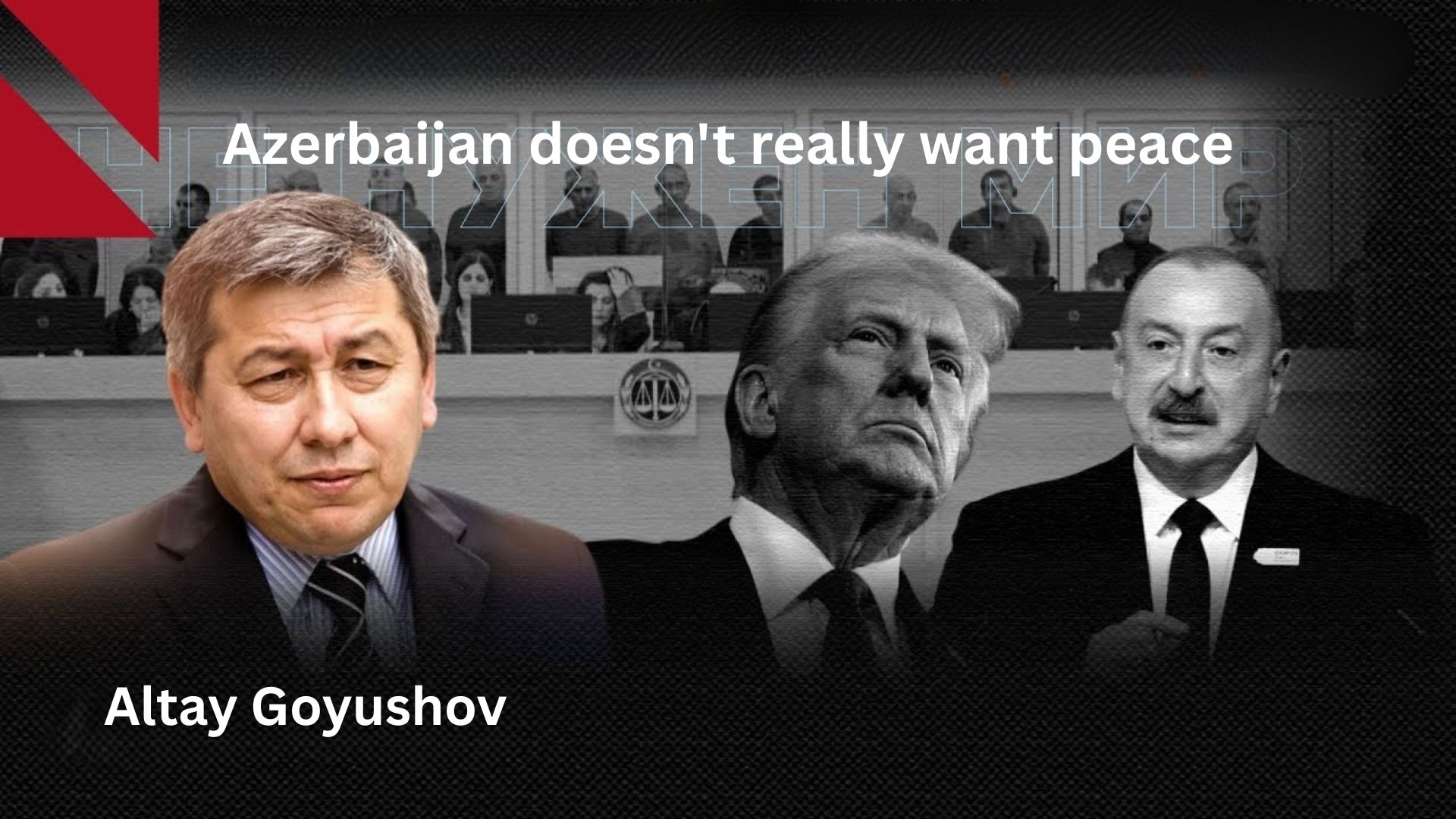Originally published in French on April 4, 2025

Historian Altay Goyushov, director of the Baku Research Institute (BRI), hosted at Sciences Po’s CERI as “endangered scholar” in 2024-2025, gave an interview to CivilNet in Russian on April 2, 2025, in which he discussed the current phase of the negotiation process between Armenia and Azerbaijan. According to him, despite recent agreements on certain sensitive issues, Azerbaijan has no real intention of concluding a lasting peace. Goyushov also points to pressure from Western countries, which is currently limiting any desire to resume large-scale hostilities. Beyond the military aspect, he emphasises above all the absence of the rule of law in Azerbaijan, a fact that affects both Azerbaijani political prisoners and Armenian prisoners held in Baku.
In mid-March, the Armenian and Azerbaijani authorities announced that they had concluded negotiations on two particularly difficult issues: the non-deployment of third-country forces along the border and the withdrawal of legal proceedings brought before international courts. These advances offer a glimmer of hope, albeit modest, for the restoration of some form of lasting peace. However, according to historian Altay Goyushov, the momentum quickly proved illusory: Azerbaijan continues to accuse Armenia of violating the ceasefire on a daily basis and is demanding that Armenia amend its Constitution, thereby perpetuating the idea of ongoing instability.
Goyushov, who heads the Baku Research Institute, a research centre that is to be pointed out as dissident in relation to the Aliyev regime, sees this as a deliberate strategy to maintain an ambiguous status quo: neither open war nor definitive peace. Thus, despite recent statements suggesting substantial progress, Baku continues to raise other demands — including constitutional changes and the questioning of the role of international mediation — to put pressure on Yerevan.
The historian also points out that Armenia, having suffered military defeat in the last war, has no interest in perpetuating a climate of confrontation. On the contrary, Yerevan has repeatedly expressed its willingness to reach a peace agreement and has proposed the establishment of an incident monitoring mechanism, an initiative to which Azerbaijan has not responded. Goyushov therefore considers it ‘very difficult to believe the statements of the Azerbaijani government’ accusing Yerevan of violating the ceasefire on an almost daily basis since March 17, 2025.
With regard to the factors preventing Baku from resorting to large-scale military action, Altay Goyushov highlights the position of Western countries, particularly France and the United States. In his analysis, a large-scale military operation by Azerbaijan would immediately be perceived as a serious provocation: ‘almost all European countries would unambiguously blame the Azerbaijani government.’ Furthermore, although the US administration has remained discreet on the domestic situation in Azerbaijan, it is keeping a close eye on developments. During his election campaign, Donald Trump expressed his willingness to contribute to peace between Yerevan and Baku; however, for the time being, no real diplomatic rapprochement seems to be taking place between the White House and President Ilham Aliyev. Baku therefore does not appear to wish to aggravate the situation, for fear of openly alienating the West.
Domestically, Goyushov emphasises the repressive climate that persists in Azerbaijan. All independent journalists and most civil society actors who have the misfortune to criticise the government find themselves behind bars. According to him, this lack of fundamental freedoms and respect for human rights complicates any serious rapprochement with the West. Washington, like other Western capitals, cannot ignore this authoritarian drift.
Finally, addressing the issue of the ‘show trials’ in Baku against Armenian prisoners, Goyushov points out that there is no rule of law in Azerbaijan. The judiciary is not independent of the political authorities, either for Azerbaijani political prisoners or for Armenian detainees. The historian notes that it is difficult to judge, from the outside, the real conditions of detention of the Armenian captives, as much of the information is based on rumours or media spin. On the other hand, the clearest trend remains the ‘exacerbated nationalism’ of a section of Azerbaijani society, which perpetuates the image of a hereditary enemy, thereby helping to justify pressure on Armenian prisoners.
However, the ‘structural weakness’ of the country’s justice system makes it impossible, according to Goyushov, to consider any trial fair. ‘There cannot be fair treatment for an Armenian and unfair treatment for an Azerbaijani, or vice versa,’ he argues. According to him, the nationalist consensus is based on a general mistrust, even tacit acceptance, of the political nature of judgments, fuelling a climate in which justice remains instrumentalized.
At the end of this analysis, Goyushov concludes that Azerbaijan is content, for the time being, to maintain a situation of ‘prolonged uncertainty’, without concrete diplomatic progress or a new open conflict. According to the historian, Western influence remains the main obstacle to escalation, while the absence of the rule of law and intolerance towards opponents such as Armenians continue to weigh heavily on any prospects for lasting peace.
